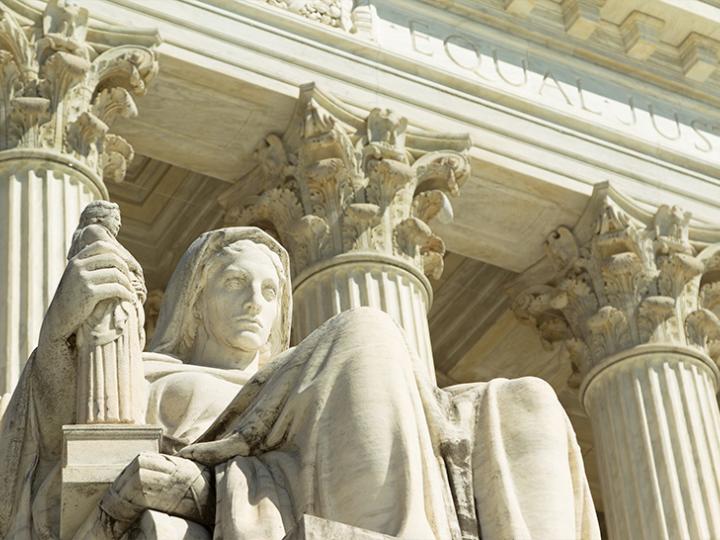In a dissenting opinion delivered in Upper Skagit Indian Tribe v. Lundgren, U.S. Supreme Court Justice Clarence Thomas quoted § 456(2) of the Restatement Fourth, The Foreign Relations Law of the United States: Sovereign Immunity (Tentative Draft No. 2, 2016), as well as provisions of the Second and Third Restatements.
The case stemmed from a dispute regarding a fence along the boundary line separating the Tribe’s non-reservation land from the land of its neighbors, which the Tribe claimed was in the wrong spot, leaving about an acre of its land on the neighbors’ side of the fence. The neighbors filed a quiet-title action in Washington state court against the Tribe. The Supreme Court of Washington entered judgment in favor of the neighbors, rejecting the Tribe’s claim of sovereign immunity from the suit, reading County of Yakima v. Confederated Tribes and Bands of Yakima Nation, 502 U.S. 251 (1992), as distinguishing in rem from in personam lawsuits and ‘“establish[ing] the principle that . . . courts have subject matter jurisdiction over in rem proceedings in certain situations where claims of sovereign immunity are asserted.’”
The U.S. Supreme Court vacated the state court’s decision and remanded, clarifying that Yakima did not address the scope of tribal sovereign immunity but involved a question of statutory interpretation. The Court declined to address the neighbors’ argument that “the Tribe cannot assert sovereign immunity because this suit relates to immovable property located in the State of Washington that the Tribe purchased in the ‘[ ] character of a private individual.’” The court noted that the parties did not raise the “immovable property” exception below or in their certiorari-stage briefs, and decided to “leave it to the Washington Supreme Court to address these arguments in the first instance.”
In his dissent, Justice Thomas, joined by Justice Samuel A. Alito, Jr., argued that the Court should have resolved the case based on the “immovable property” exception. He explained that the exception “is settled, longstanding and obviously applies to tribal immunity—as it does to every other type of sovereign immunity that has ever been recognized,” and that it “was extensively briefed and argued, and its application here is straightforward.” Citing the Restatements, Justice Thomas argued:
The Restatement of Foreign Relations Law reflects this unbroken consensus. Every iteration of the Restatement has deemed a suit concerning the ownership of real property to be “outside the scope of the principle of [sovereign] immunity of a foreign state.” Restatement of Foreign Relations Law of the United States (Proposed Official Draft) §71, Comment c, p. 228 (1962); see also Restatement (Second) of Foreign Relations Law of the United States §68(b) (1965) (similar); Restatement (Third) of Foreign Relations Law of the United States §455(1)(c) (1987) (denying that immunity exists for “claims . . . to immovable property in the state of the forum”); Restatement (Fourth) of Foreign Relations Law of the United States §456(2) (Tent. Draft No. 2, Mar. 22, 2016) (recognizing “jurisdiction over a foreign state in any case in which rights in immovable property situated in the United States are in issue”). Sovereign immunity, the First Restatement explains, does not bar “an action to obtain possession of or establish an ownership interest in immovable property located in the territory of the state exercising jurisdiction.” §71(b), at 226.
. . .
Because the immovable-property exception clearly applies to both state and foreign sovereign immunity, the only question is whether it also applies to tribal immunity. It does.
Read the full opinion.
